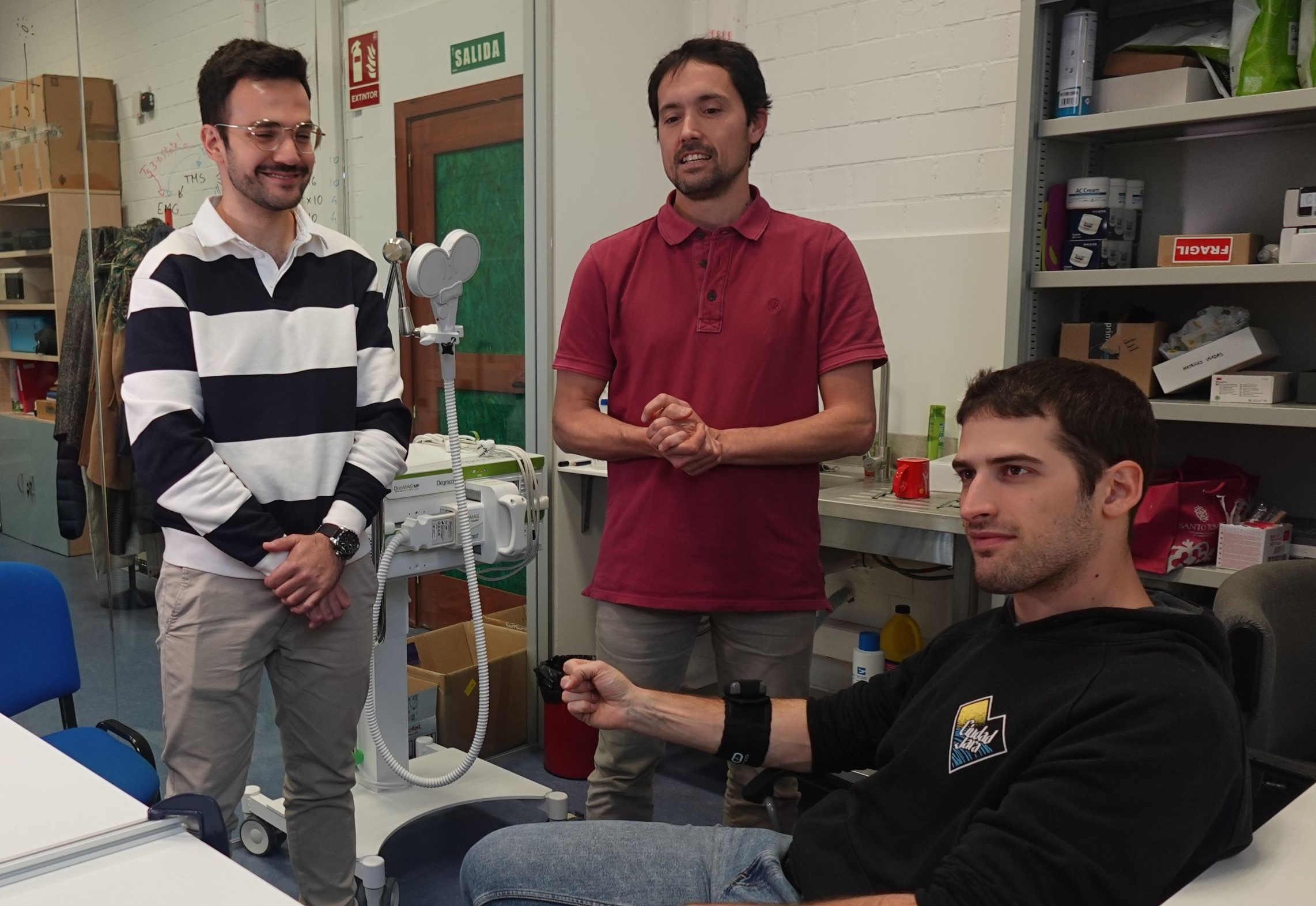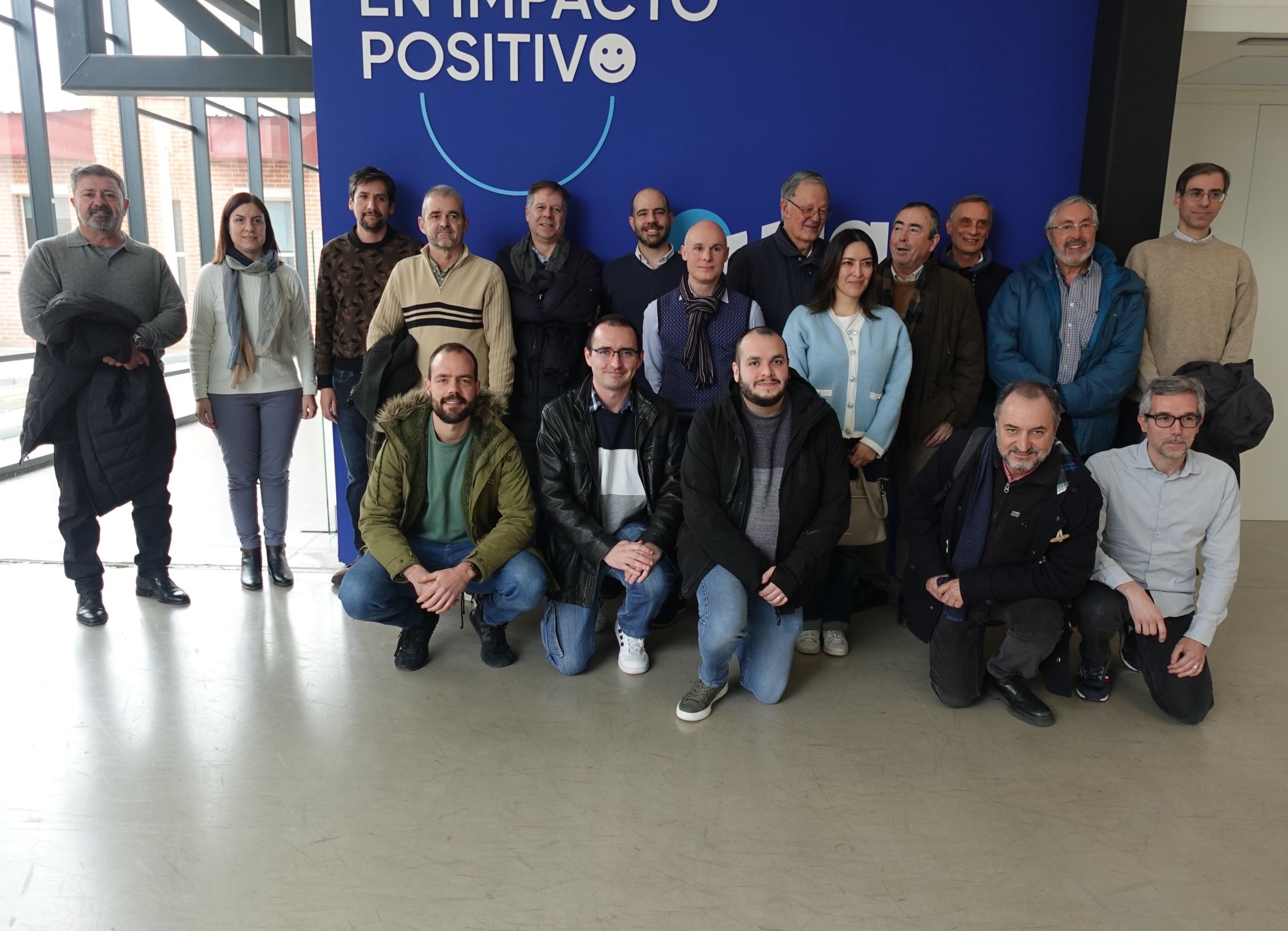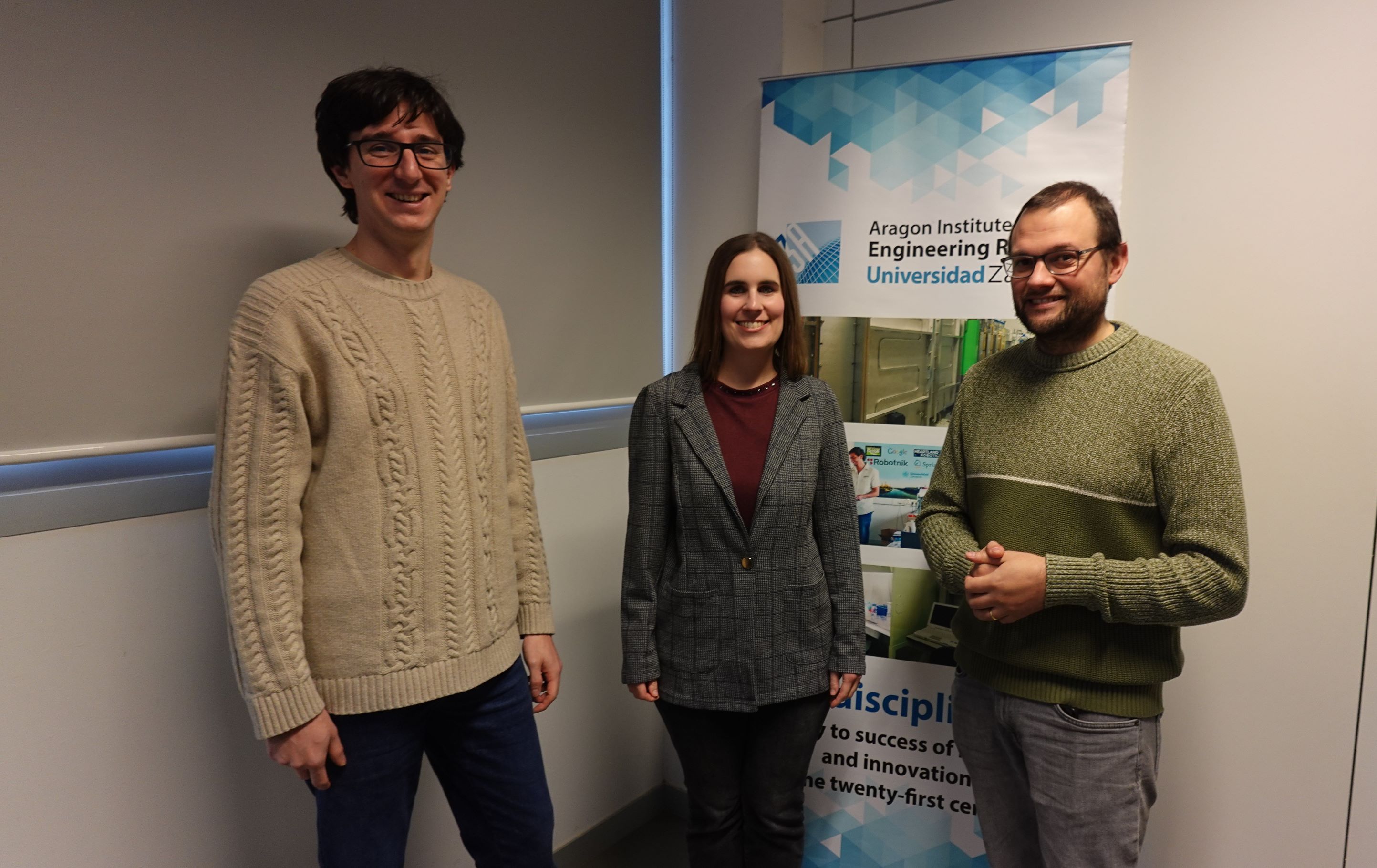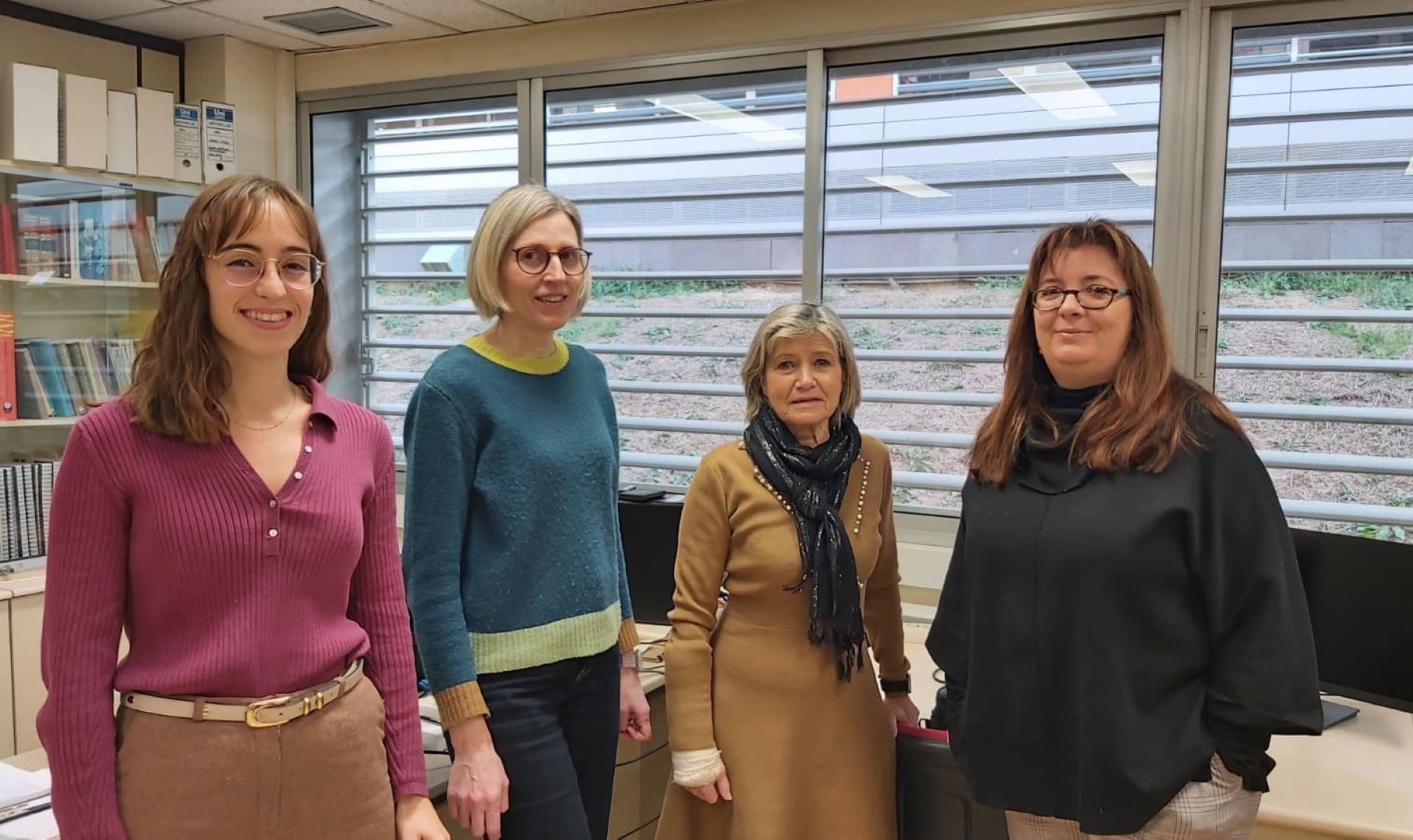
The Aspanoa Chair has just awarded grants worth 16,000 euros to set up three new projects, in collaboration with the Aragon Institute for Engineering Research (I3A), to develop actions to improve the quality of life of children with cancer and their families, both in the field of care and in other essential aspects of their lives such as education, physical well-being or their social life, which are totally altered during treatment.
Through the Impulso Programme with Aspanoa, the Chair will finance three projects to be coordinated by eight researchers focusing on neuroblastoma, the identification of tumour cells through biosensors and the development of technological applications to facilitate physical exercise for children who have undergone cancer.
This is the second edition of this programme and ‘we decided to redistribute the funds we had available to try to respond to the largest number of projects of all those that had been presented’, explains María Ángeles Pérez Ansón, director of the Aspanoa Chair.
The three projects that will receive funding ‘are exceptional and different, which is something we were also looking for, two are more basic research projects and the third is more applied. In the end, all of them in one way or another contribute to childhood cancer and to improving the quality of life of children,’ says Pérez Ansón.
The manager of Aspanoa, Juan Carlos Acín, pointed out that the Association seeks with this Chair to ‘solve very specific problems’ that affect children suffering from this disease. ‘We are delighted to promote these three projects that not only seek to improve survival, but also to reduce the after-effects suffered by the children who survive.
Strategies for the treatment of children with high-risk neuroblastoma using CAR-T immunotherapy
José Manuel García Aznar (M2BE - I3A), Diego Sánchez Martínez (IIS Aragón) and Ainara González (Hospital Infantil de Zaragoza).
Neuroblastoma is the most common extracranial solid tumour in children, accounting for 11% of all cancer deaths in the paediatric population. Almost half of patients have high-risk disease at diagnosis, and five-year survival is 40-50%.
This multidisciplinary project will be developed by three complementary research groups working on biomedical engineering, immunotherapy and, finally, a clinical application group at the Zaragoza Children's Hospital.
The aim is to create a multidisciplinary platform for in vitro work to evaluate different strategies, based on the new CAR-T immunotherapies, that allow personalised treatments for childhood cancer. This novel therapy has already been applied for some years in children with leukaemia and this project aims to test in the laboratory whether it is also effective in neuroblastoma.
‘We hope to create a working group in Aragon to familiarise ourselves with the use of this technology and to be able to use it in the future in paediatric patients,’ explains José Manuel García Aznar, researcher at the I3A.
MICROBIOSENS ‐ Development and application of biosensors for the assessment of the malignant potential of tumour cells
Arantxa Otín (GEPM - I3A) and Senentxu Lanceros (BCMaterials).
The identification and detection of cancer biomarkers are clear non-invasive tools for the detection, prevention and early treatment of cancer. In this regard, biosensors have emerged as a technology that facilitates such biomarker detection and monitoring in a rapid, sensitive and cost-effective manner.
This project will address the design, fabrication and testing of an integrated microfluidic system. The biosensors developed will aid in the early detection and monitoring of paediatric cancer by assessing important biomarkers for several common childhood tumours.
The evolution of metabolic parameters of biological cultures grown under different conditions will be evaluated, considering samples with different invasiveness or metastatic capacity.
Promotion and Supervision of Physical Activity for Childhood Cancer Patients
Natalia Ayuso (RoPeRT – I3A), Vanesa Bataller (USJ) and Raquel Trillo (DiSCO – I3A)
The aim is to design a tool that combines the proposal of personalised physical activity with its monitoring in children who are cancer survivors. Having a platform that integrates information from different devices, that is child-friendly and that can collect personalised physical activity programmes, would make it possible to encourage children to practice physical activity and improve their physical condition and quality of life.
The proposal aims to allow information from these wearable devices to be collected, processed and displayed on a gamified platform with a child-friendly interface. In addition, the tool would provide families and doctors with documented information on adapted physical exercise programmes for those who have suffered from childhood cancer.
Wearable devices, as well as other digital health interventions, are an innovative approach to exercise adherence in childhood cancer survivors.
Something very positive about this call for Impulso projects with Aspanoa ‘is the multidisciplinary nature of the teams that form them. This is one of the added values of this Chair. Research against childhood cancer requires teams with different skills among its members and we easily find that among I3A researchers and their collaborators,’ stresses María Ángeles Pérez Ansón.
About the Aspanoa Chair
The Aspanoa Chair at the University of Zaragoza was created in 2023 to promote research into childhood cancer. It has the collaboration of the Aragon Institute for Engineering Research (I3A). It is directed by María Ángeles Pérez, professor of Mechanical Engineering and researcher at the I3A. In addition, Manuel Arruebo, professor of Chemical Engineering and researcher at the Institute of Nanoscience and Materials of Aragon (INMA); Óscar Lucía, professor of Electronic Technology and president of the Young Academy of Spain; the president of Aspanoa, Gabriel Tirado, and the manager of this Association, Juan Carlos Acín, also form part of the joint monitoring committee of this chair.

Photos: Asier Alkorta




